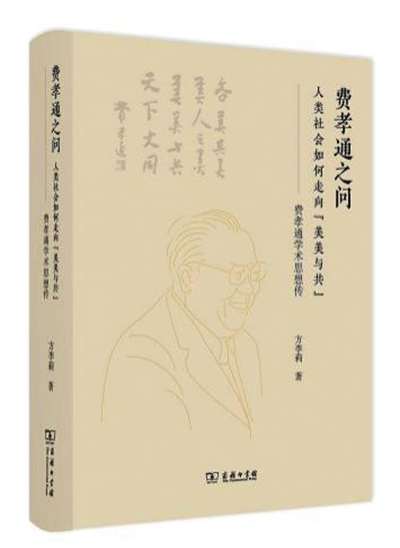Cultural self-consciousness of Fei Xiaotong

The Questions of Fei Xiaotong
There are voluminous books and articles about renowned sociologist Fei Xiaotong (1910–2005), but capturing his true essence through writing is no easy task. The Questions of Fei Xiaotong, by Fang Lili, a distinguished chair professor from Southeast University, represents a step forward in this endeavour.
Fang divides Fei’s academic career into two distinct phases. Fei’s early academic efforts centered on exploring the path of China’s modernization, upholding the “ideal of enriching the people.” In his later years, Fei successfully built bridges between barbarism and civility, the material and the spiritual, and China and the world, embodying “cultural self-consciousness.” While many scholars have extensively analyzed Fei’s early academic contributions, this book’s standout achievement lies in its examination and distillation of Fei’s later intellectual work. Specifically, it emphasizes how Fei viewed the world from China’s perspective, how he bridged the gap between barbarism and civility and the East and the West, and how he broadened the disciplinary boundaries of sociology.
The book also explores Fei’s support for humanities projects in the western region and his guidance in the establishment of the China Society for Anthropology of Arts. These experiences reflect the growth and extension of Fei’s cultural consciousness in his later years, as well as Fang’s own academic growth. Although the author began to follow Fei relatively late, she had the opportunity to conduct in-depth scholarly exchanges with him during his later years. Initially specializing in art anthropology, she ventured into the field of sociology with some trepidation coinciding with Fei’s period of intellectual reflection. This fortuitous timing sparked significant intellectual exchanges between them.
What, then, is the “Fei Xiaotong Question”? It is, in essence, a question about the future of humanity and how we can better live and develop. As early as 1990, on his 80th birthday, Fei envisioned “a world in which countries treasure their own distinct heritages, appreciate other cultures, and promote shared prosperity.” As the new century approached, the world’s greatest minds were pondering the future of humanity. Whether it was Fukuyama’s “End of History,” Huntington’s “Clash of Civilizations,” or Joseph Nye’s “Soft Power,” these theories all reflected a Western philosophy of conflict and struggle. In contrast, Fei’s thoughts embodied an Eastern philosophy of “harmony in diversity,” seeking common ground while respecting differences. As we look ahead to the complexities of the 21st century, Fei’s ideals, which might seem like mere personal reflections, actually represent a broader vision—the hope for a better world. This vision explains why he put forward the vision of “a better society” in his later years.
Xu Ping is a distinguished professor from Inner Mongolia Normal University.
Edited by YANG LANLAN
